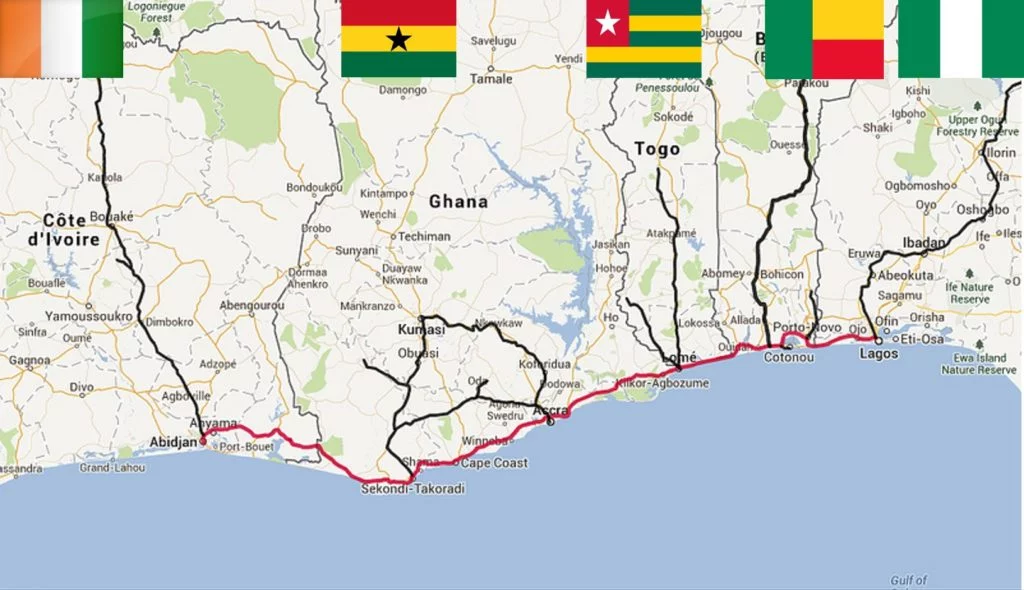Transnational Abidjan-Lagos highway set to transform west Africa’s economic landscape

The ambitious Abidjan-Lagos Highway project has entered critical stages, promising to redefine West Africa’s economic and industrial landscape.
Stretching 1,028 kilometers, the highway will link Côte d’Ivoire to Nigeria, passing through Ghana, Togo, and Benin.
Backed by the African Development Bank (AfDB) under its Spatial Development Initiative, the highway aims to be operational by 2030.
Construction is set to begin in 2026, with completion expected within four years, the AfDB revealed during a virtual workshop.
Key preparatory steps, including feasibility studies, funding options, and institutional frameworks, have been finalized, according to Mike Salawou, director of AfDB’s Infrastructure and Urban Development Department.
“This transport corridor is designed to evolve into an economic corridor.
The Bank has initiated the Spatial Development Initiative to enable transformative industrialization along the highway and drive the growth of major economic hubs,” he explained.
A $6.8 Billion Investment Opportunity
The Spatial Development Initiative identified 206 potential projects along the corridor, requiring an initial investment of $6.8 billion, primarily from the private sector.
Targeted areas include renewable energy, manufacturing, transport logistics, agriculture, ICT, tourism, mining, and the establishment of special economic zones.
Chris Appiah, Director of Transport at the Economic Community of West African States (ECOWAS), emphasized the project’s role in regional integration.
“This is an integrated initiative that will significantly advance our goal of economic union,” he said.
Connecting Key West African Economies
The highway’s route will begin in Bingerville, Côte d’Ivoire, and end at the National Theatre in Lagos, Nigeria, passing through:
- Côte d’Ivoire: 144 kilometers
- Ghana: 520 kilometers
- Togo: 90 kilometers
- Benin: 127 kilometers
- Nigeria: 82 kilometers
The toll highway will feature four to six lanes, expanding to eight lanes in Lagos, and will include 63 interchanges.
Supported by the African Investment Forum, the project has already secured $15.6 billion in investment commitments, with the potential to create 70,000 direct and indirect jobs, according to the AfDB.
Strategic Regional Connectivity
The highway will integrate with other West African transport corridors, connecting landlocked nations like Mali, Burkina Faso, and Niger to eight regional ports.
It will also link with the Abidjan-Dakar-Praia corridor, further enhancing trade and economic connectivity, noted Lydie Ehouman, AfDB’s transport economist and project leader.
This transformative infrastructure is poised to become a cornerstone of West Africa’s economic future, fostering greater regional cooperation and development.
About The Author
dailymailafric
I am an avid African news observer, and an active member of Daily Mail Africa.
I’m Passionate about staying informed on diverse topics across the continent,
I actively contribute to publishing on political, economic and cultural developments in Africa.



